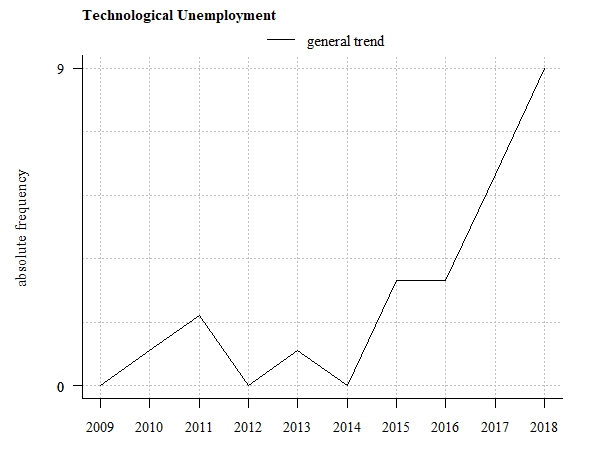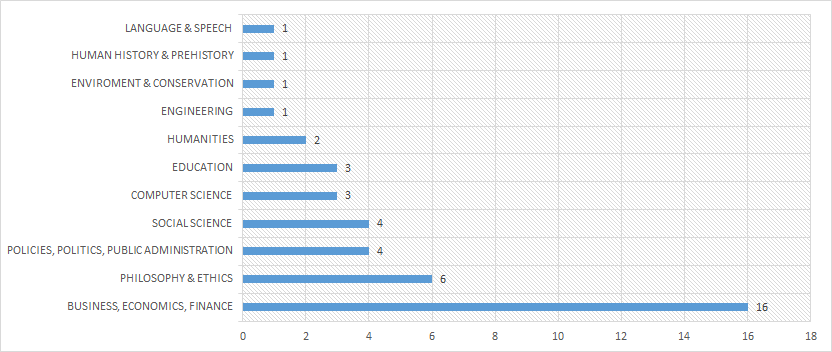Open data - Download the Knowledge base
You are free to download the data of this Knowledge base.
To do this you must be an authenticated user: log in or sign in now.
All the data are licensed as Creative Common CC-BY 4.0.
Technological Unemployment is about the societal impacts of technologies. Danaher defines technological unemployment “as the replacement of human workers […] by technological alternatives (machines, computer programs, robots and so forth)”. Furthermore, he assumes that artificial intelligence and robots will take over the work of humans in future. This is one reason why technological developments often come with people´s fear of the consequences. Everything is automated to such an extent that human work is no longer needed. [1]
Loi argues that ICT technologies and the substitution of human work with computer-driven automation are associated with a risk of human disenhancement. The current technological developments substitute particularly middle-class jobs and leads to greater competition for jobs. [2]
Therefore, it is not surprising that there is often scepticism about new technologies, also under civil servants.


| Agenda Setting | Policy Design and Analysis | Policy Implementation | Policy Monitoring and Evaluation | |
|---|---|---|---|---|
| Agriculture, Fisheries, Forestry & Foods | ||||
| Economy & Finance | ||||
| Education, Youth, Culture & Sport | ||||
| Employment & Social Security | ||||
| Environment & Energy | ||||
| Health | ||||
| Foreign Affairs and Defence | ||||
| Justice, Legal System & Public Safety | ||||
| Public Affairs | ||||
| Innovation, Science & Technology | ||||
| Urban Planning & Transport | ||||
| Institutional Questions / Internal Affairs |
You are free to download the data of this Knowledge base.
To do this you must be an authenticated user: log in or sign in now.
All the data are licensed as Creative Common CC-BY 4.0.